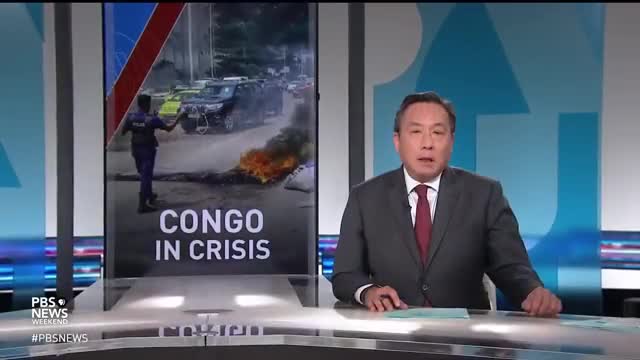Rebels massacre 38 in escalating Congo violence

This article was created by AI summarizing key points discussed. AI makes mistakes, so for full details and context, please refer to the video of the full meeting. Please report any errors so we can fix them. Report an error »

In the Democratic Republic of Congo (DRC), local officials report that suspected Islamist rebels have killed at least 38 people in an overnight attack on a village in the eastern part of the country. This incident marks a continuation of escalating violence that has surged since February. The DRC has been embroiled in conflict since 1996, resulting in approximately 6 million deaths over the years.
The region is primarily affected by two prominent rebel factions: the March 23 Movement (M23) and the Allied Democratic Forces (ADF). The M23 has been accused of receiving support from neighboring Rwanda, a claim that the Rwandan government denies. The ADF, which is affiliated with the Islamic State, has been implicated in the recent attack. These groups are among more than 120 armed factions operating in the area, all vying for control over the DRC's abundant reserves of metals and rare minerals.
The ongoing violence has had a devastating impact on civilians, with the Congolese government frequently criticized for its inability to protect its citizens. According to the United Nations, the conflict has displaced approximately 5.7 million people across the provinces of North Kivu, South Kivu, and Ituri.
Jada Doyen McKenna, CEO of Mercy Corps, a nonprofit organization providing humanitarian aid in the region, highlighted the complex nature of the conflict. She pointed to the struggle for control over illegal mining operations, inter-ethnic tensions, and the influence of proxy wars involving neighboring countries as root causes of the violence. McKenna noted that the fragmentation of conflict groups has led to a significant increase in the number of factions involved, complicating the situation further.
The region is primarily affected by two prominent rebel factions: the March 23 Movement (M23) and the Allied Democratic Forces (ADF). The M23 has been accused of receiving support from neighboring Rwanda, a claim that the Rwandan government denies. The ADF, which is affiliated with the Islamic State, has been implicated in the recent attack. These groups are among more than 120 armed factions operating in the area, all vying for control over the DRC's abundant reserves of metals and rare minerals.
The ongoing violence has had a devastating impact on civilians, with the Congolese government frequently criticized for its inability to protect its citizens. According to the United Nations, the conflict has displaced approximately 5.7 million people across the provinces of North Kivu, South Kivu, and Ituri.
Jada Doyen McKenna, CEO of Mercy Corps, a nonprofit organization providing humanitarian aid in the region, highlighted the complex nature of the conflict. She pointed to the struggle for control over illegal mining operations, inter-ethnic tensions, and the influence of proxy wars involving neighboring countries as root causes of the violence. McKenna noted that the fragmentation of conflict groups has led to a significant increase in the number of factions involved, complicating the situation further.
View full meeting
This article is based on a recent meeting—watch the full video and explore the complete transcript for deeper insights into the discussion.
View full meeting